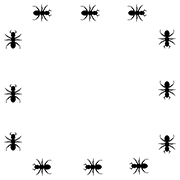
Professional Wasp Removal Services in Providence, RI
At Guardian Pest Control, we recognize the importance of maintaining a safe and comfortable environment free from the dangers posed by bees, hornets, and wasps. These stinging insects, while beneficial in certain ecological roles, can become significant nuisances and health hazards when they invade residential and commercial properties. Our professional bee, hornet, and wasp control services in Providence, Fall River, and the surrounding areas are designed to effectively address and prevent infestations, ensuring your safety and peace of mind.
To request a service quote, call us today at (401) 812-3033.
Essential Facts About Bees & Wasps
- Habitats: Bees and wasps are commonly found in a variety of habitats. Bees, particularly honeybees, often establish colonies in tree cavities, wall voids, or man-made hives. Bumblebees prefer underground nests, while carpenter bees bore into wood to create their nests. Wasps, such as yellowjackets and paper wasps, typically build their nests in sheltered areas like eaves, attics, and wall voids, or underground.
- Behaviors: Bees are generally non-aggressive and focused on collecting pollen and nectar, essential for pollination and honey production. However, they can become defensive and aggressive when their nest is threatened. Wasps, on the other hand, are more aggressive and territorial by nature. They are scavengers, feeding on a variety of foods, including other insects, and are more likely to sting when disturbed or threatened.
- Seasonal Activity: Both bees and wasps are most active during the warmer months, from spring through early fall. During these periods, their populations grow, and they become more visible as they forage for food and build or expand their nests.
Understanding the Risks of Bees & Wasps
Bees and wasps can pose several dangers to humans and pets, making effective control essential.
- Stings: The primary danger of bees and wasps is their sting, which can cause pain, swelling, and allergic reactions. While most stings result in temporary discomfort, some individuals may experience severe allergic reactions (anaphylaxis) that require immediate medical attention.
- Multiple Stings: Unlike bees, which typically die after a single sting, wasps can sting multiple times, increasing the risk of severe reactions and complications.
- Nest Proximity: Nests located near human activity areas, such as homes, gardens, or playgrounds, increase the likelihood of encounters and stings. This is particularly concerning for children, the elderly, and those with known allergies.
- Property Damage: Carpenter bees can cause structural damage by boring into wood to create their nests. Over time, this can weaken wooden structures and lead to costly repairs.
Hornets: A Threat to Your Providence Home
Hornets, often mistaken for wasps, are aggressive insects that can pose a serious threat to homeowners in Providence, RI. These social insects build large paper nests, typically in trees or shrubs, but can also inhabit structures.
A hornet sting is painful and can cause allergic reactions in some individuals. Their nests are also a safety hazard, especially for children and pets. If you suspect a hornet infestation on your property, it's crucial to contact a professional pest control service immediately. Don't attempt to remove a hornet nest yourself, as it can be extremely dangerous.
Guardian Pest Control offers expert hornet removal services in Providence. Our technicians are trained to safely and effectively eliminate hornet nests, protecting you and your family from harm.
Hornets vs. Wasps: What's the Difference?
While often used interchangeably, hornets and wasps are actually different types of insects.
- Size: Hornets are generally larger than most wasps.
- Color: Hornets often have a more distinct black and white color pattern, while wasps are typically yellow and black.
- Nests: Both build paper nests, but hornet nests tend to be larger and more enclosed.
- Aggression: Both can be aggressive when threatened, but hornets are generally considered more aggressive.
It's important to note that the term "hornet" is sometimes incorrectly used to describe other wasps, especially the bald-faced hornet, which is actually a type of yellowjacket.
If you're unsure about whether you have hornets or wasps, it's best to contact Guardian Pest Control for identification and removal.


See What Your Neighbors Are Saying

-
"Friendly techs and great customer service."
We've used Guardian Pest Control for years and are really happy with them. The techs are always so friendly and customer ...
- Melissa T. -
"A worthwhile investment."
Using Guardian Pest Control for over a year has been a worthwhile investment. The team helped with a unique yellow jacket ...
- Albert G. -
"A breath of fresh air!"
Josh has been my technician for a rodent issue for the past few months and he's been patient and explains everything, and answers all my questions.
- Kate K. -
"I'm very confident!"
They were responsive and offered a reasonable rate for my property. Olivia was awesome!
- Jim C. -
"So grateful!"
I was SO pleased and honestly grateful for the service that Olivia provided! She put me at ease (which is very difficult given my fear of rodents).
- Tonya S. -
"Couldn't be more satisfied!"
Absolutely will be recommending Guardian Pest control and Olivia to our friends/family.
- Alexa H. -
"So considerate!"
Olivia communicates very effectively and is a good teacher and educated me as the homeowner on how to address issues in my house that help deter mice from entering the home, garage and sheds.
- Nicolette C. -
"Very thorough!"
Haven't seen... or heard... any critters!
- Susanne T.
Why You Should Not Attempt DIY Bee/Wasp Removal Methods
Attempting to remove bee or wasp nests on your own can be dangerous and is not recommended for several reasons:
- Risk of Stings: Disturbing a nest can provoke aggressive behavior from bees and wasps, leading to multiple stings and potential allergic reactions. Without proper protective equipment and experience, the risk of injury is significantly increased.
- Incomplete Removal: DIY methods often fail to completely eradicate the nest and its inhabitants. This can result in recurring infestations and continued risks to safety and property.
- Lack of Expertise: Identifying the specific type of bee or wasp and understanding their behavior is crucial for effective removal. Professionals have the knowledge and tools to safely and accurately address the infestation.
- Environmental Impact: Certain bee species, like honeybees, are vital for pollination and should be relocated rather than exterminated. Professionals can ensure that environmentally responsible methods are used, preserving beneficial insect populations while addressing the immediate problem.
If you are facing a bee or wasp infestation, the best course of action is to call Guardian Pest Control to have our professionals remove the hive safely.
Contact Guardian Pest Control for Expert Stinging Insect Control
At Guardian Pest Control, we prioritize your safety and well-being. Our team of experienced technicians offers expert bee, hornet, and wasp control services in Providence utilizing safe and effective methods to eliminate these pests and prevent future infestations.
We understand the urgency and potential dangers of stinging insect infestations and are committed to providing prompt and reliable solutions.
Don’t risk your safety with DIY methods—contact us today for a professional consultation and let us handle your bee, hornet, and wasp control needs with care and expertise.


